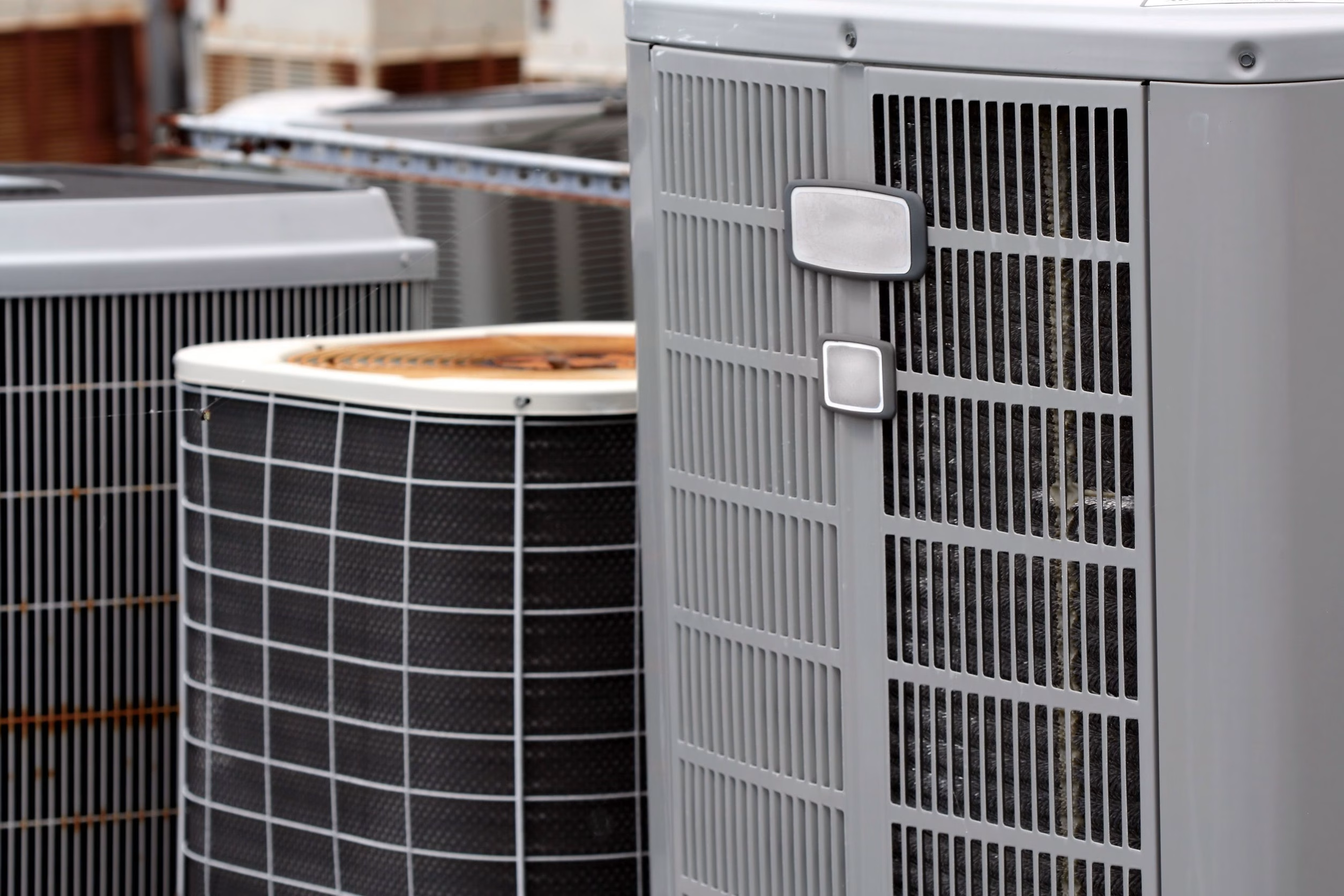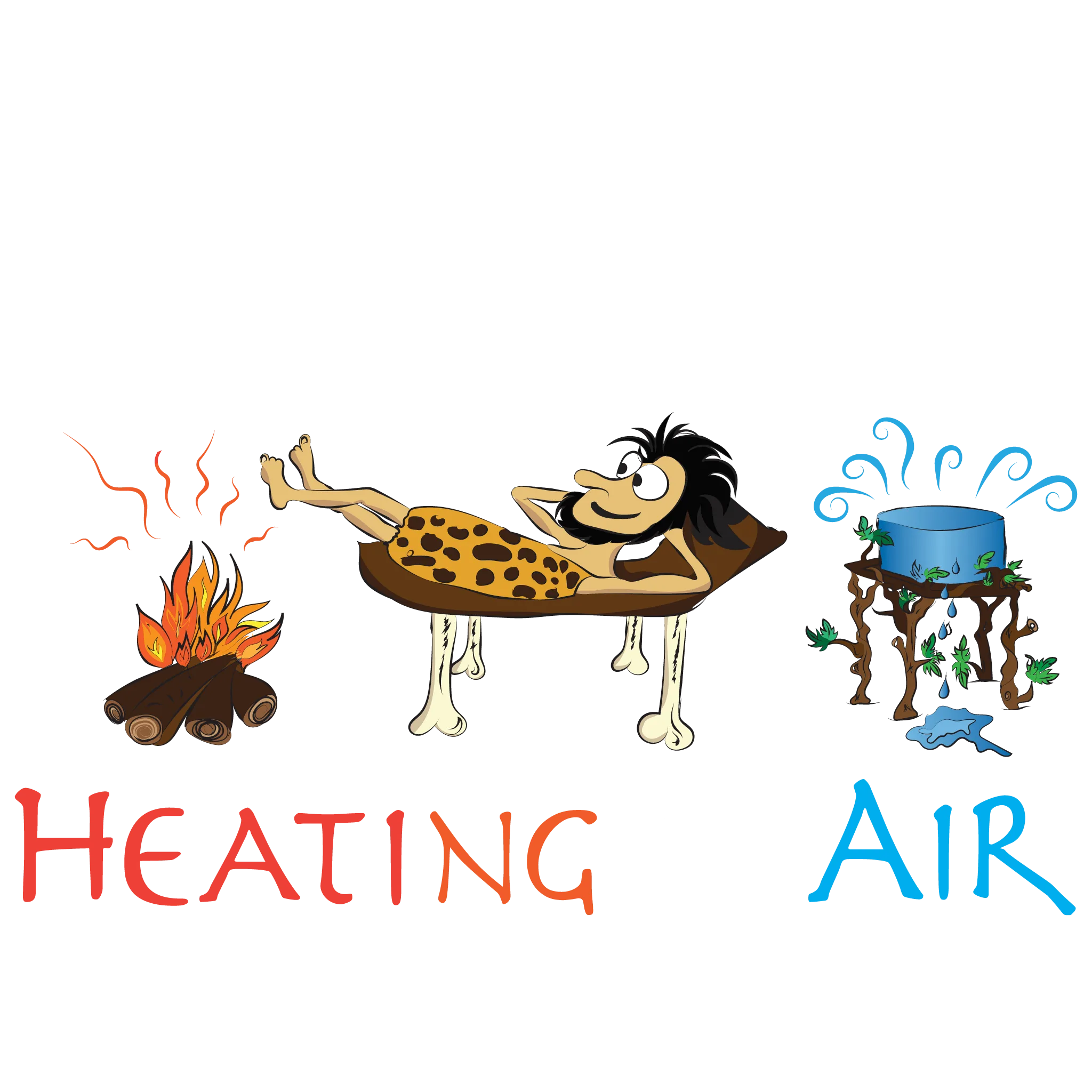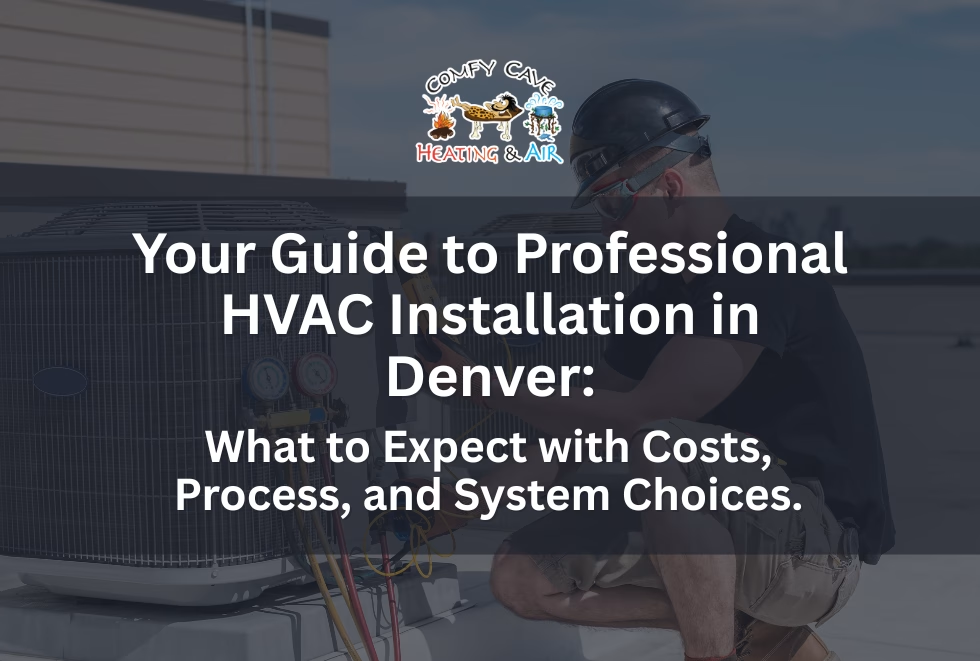Getting a new HVAC system installed in Denver is a smart move to boost your home’s comfort, energy savings, and indoor air quality from day one. This guide will walk you through realistic timelines, clear cost breakdowns, a detailed installation roadmap, and how to pick the perfect furnace, air conditioner, or heat pump for Colorado’s unique weather. Whether you’re gearing up for installation day or thinking about long-term care, you’ll learn what to expect, how local permits fit into your budget, and which systems offer the best bang for your buck in Denver. By understanding every step—from the initial prep to the final checks—you’ll feel confident choosing Comfy Cave– Your Trusted HVAC Experts in Denver for a smooth, code-compliant installation.
1. HVAC Installation Timelines: How Long Does It Take in Denver?

How Long Does Professional HVAC Installation Take in Denver?
Typically, professional HVAC installation in Denver takes about one to three days. This can vary depending on how complex the system is, permit processing, and if any ductwork adjustments are needed. A simple furnace swap might be done in a single day, while installing both a furnace and central air could take two days or more. The total time accounts for preparation, local inspections, and final system checks to ensure everything is up to code and running perfectly.
What Factors Influence How Long HVAC Installation Takes?
Several things can affect how long your installation takes, like the type of system, the existing ductwork, and how long it takes to get permits:
- System Complexity:More advanced systems, like multi-stage furnaces or variable-speed heat pumps, naturally take longer to set up.
- Ductwork Modifications:If we need to customize or seal your duct runs, that adds extra work.
- Electrical Upgrades:Sometimes, your electrical panel might need an upgrade or new dedicated circuits, which extends the timeline.
- Permit and Inspection Scheduling:Denver’s Department of Community Planning and Development needs to review plans before inspections can happen.
Getting these details sorted early on and having accurate load calculations done can help speed things up and keep your project on track and budget.
How Does Installation Time Differ for Furnaces, ACs, or Heat Pumps?
- Furnace installation:About 6–8 hours
- Furnace + central AC:1.5–2 days
- Heat pumps:2–3 days (for charging, defrost controls, and performance testing)
2. Preparing for Installation Day
What Should Homeowners Get Ready for on Installation Day?
On installation day, please clear the work areas, make sure our technicians can easily access the equipment spaces, and keep pets safely out of the way.
- Clear the installation zone by moving furniture and stored items.
- Confirm access to attics or crawl spaces if ductwork needs adjustments.
- Ensure easy access to your breaker panel.
- Be prepared for minor interruptions like brief utility shutdowns.
3. HVAC Installation Costs in Denver
What Are the Typical Denver HVAC Installation Costs and Financing Options?
HVAC installation costs in Denver can range from around $4,000for a basic furnace swap to $12,000+for a complete high-efficiency system replacement. The price depends on the equipment quality, labor rates, and local permit fees. Financing options and utility rebates can often help lower the initial cost.
Main Cost Components of HVAC Installation
| Cost Component | Typical Range | Additional Notes |
| Equipment | $2,500 – $8,000 | Higher efficiency ratings mean higher prices |
| Labor | $1,200 – $3,000 | Varies based on job complexity and team size |
| Permits and Inspections | $100 – $400 | Fees for Denver mechanical permits |
| Ductwork Modifications | $500 – $2,000 | Includes sealing, resizing, or installing new ductwork |
How Do Denver Permits and Regulations Affect Costs?
Denver requires mechanical permits for any HVAC swap or replacement to ensure safety and code compliance. Permit fees typically range from $150 to $350. Inspections verify safe venting, wiring, and refrigerant handling. A licensed installer who handles permitting avoids costly re-inspection delays.
Financing and Rebates for Denver Homeowners
- Utility rebatesfrom Xcel Energy for ENERGY STAR® equipment
- 0% APR financingthrough credit partnerships
- State tax creditsfor high-efficiency heat pumps
These can reduce your out-of-pocket costs by up to 30%.
4. Step-by-Step HVAC Installation Process
What Does Pre-Installation Preparation Involve?
- Load Calculation:Manual J analysis for proper sizing
- Site Assessment:Ductwork, vent location, and airflow checks
- Permit Application:Submitted to Denver’s Department of Community Planning and Development
- Scheduling:Coordinated delivery and inspection appointments
What Happens During Installation Day?
- Remove old equipment
- Modify or seal ducts
- Place the new furnace or heat pump
- Connect refrigerant lines, gas supply, and electrical circuits
- Install and calibrate the thermostat

5. System Testing and Final Walkthrough
How Is the System Tested Post-Installation?
- Refrigerant Charge Validation:Confirm levels for peak performance
- Safety & CO Checks:Verify proper venting
- Airflow Measurement:Ensure balanced comfort
- Thermostat Demo:Learn how to operate and schedule your system
This thorough process ensures reliable performance and peace of mind.
6. Choosing the Right HVAC System for Denver’s Climate
Pros and Cons of Furnaces
- Pros:Consistent heat, lower installation cost
- Cons:Fuel cost fluctuation, less efficient than heat pumps
How Air Conditioners Perform in Denver
- Pros:Excellent dehumidification, scalable for zones
- Cons:Less efficient above 95°F, requires separate heating source
Why Consider Heat Pumps
- Pros:Up to 300% efficient, lower utility bills, rebates available
- Cons:Reduced performance below 10°F, higher upfront cost
In newer or well-insulated homes, modern heat pumps are highly effective and energy-efficient.
7. Choosing the Right Size System
Correct sizing depends on a Manual J load calculation, factoring in square footage, insulation, climate data, and occupancy patterns. Proper sizing prevents frequent cycling, improves humidity control, and extends lifespan.
Ready to explore your options? Learn more about our HVAC installation services Denverand how we can help you choose the ideal system for your home.
8. Permits and Regulations: Staying Compliant
Required Permits
- Mechanical permit for furnaces or air handlers
- Refrigeration permit for AC and heat pumps
- Electrical permit for new circuits or upgrades
Why Building Codes Matter
- Safe operation of gas equipment
- Proper duct sealing and insulation
- Correct refrigerant handling and environmental compliance
Comfy Cave technicians manage all permits, inspections, and documentation for a smooth, stress-free project.
9. Maintaining Your HVAC System
Routine Maintenance Tips
- Change filters every 1–3 months
- Clean condenser coils in spring
- Inspect burner flames annually
- Test thermostat before each season
Troubleshooting Tips
- Uneven airflow:Check vents and filters
- Short cycling:Check thermostat, refrigerant, and duct size
- Noises:Inspect blower wheel and motor mounts
10. Support, Warranties, and When to Replace
Warranty & Support from Comfy Cave
- 10-year manufacturer parts warranty
- Optional 5-year labor warranty
- Priority scheduling and annual tune-ups
Signs You Need Replacement
- Age over 15 years
- Rising utility costs
- Frequent breakdowns
Benefits of Upgrading
- Lower energy bills
- Consistent comfort
- Improved air quality
Comfy Cave makes upgrades seamless — from load calculations to rebate applications — for a hassle-free experience.
Final Thoughts: Plan Your HVAC Upgrade with Confidence
Getting a new HVAC system installed in Denver requires careful planning, adherence to codes, and expert execution to achieve the best comfort and efficiency. By understanding installation timelines, cost factors, system selection, and ongoing maintenance needs, homeowners can make informed choices and avoid common issues. Partnering with ComfyCave – Your Trusted HVAC Experts in Denverensures a transparent process supported by licensed technicians and strong warranties.

